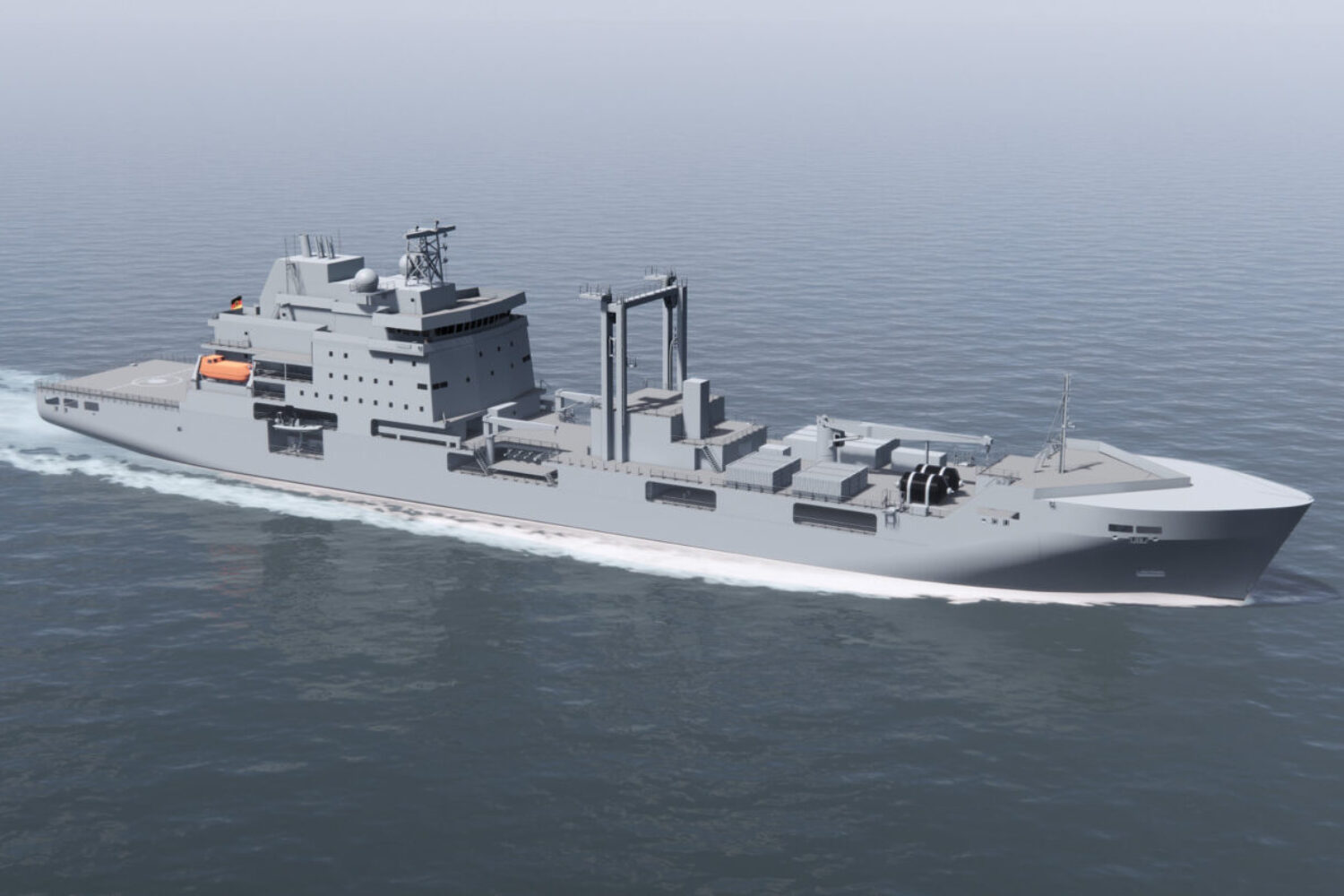Construction of the second fuel supply vessel (MBV707) for the German Navy is off to a good start at Meyer Werft. The naval tankers are also being built at the Neptun shipyard.
The keel of the sister ship was laid at Neptun Werft in mid-2023. The new military supply ships will replace the existing Rhön-class units in the future. [ds_preview]
The two naval tankers are being built under the leadership of the NVL Group, the naval shipbuilding subsidiary of the Lürssen Group, in cooperation with the Meyer Group. The platforms will be built, commissioned and tested at the Neptun shipyard in Rostock, which belongs to the Meyer Group. The deckhouses will be manufactured at the Meyer shipyard in Papenburg and then shipped to Rostock for assembly. As the general contractor, NVL is responsible for project management, the marine-specific parts of the platform and deployment system as well as services for the production of the supply maturity, “which ensure the operability of the ships in the logistics system of the Bundeswehr”. The contract has a total value of €914 million.
With a cargo volume of almost 13,000 m³ of diesel fuel, the 173 m long and 20,000 ton displacement fleet tankers allow up to three parallel refuelling operations at sea. The double-hull tankers also have numerous modular container bays, for example, for the transportation of food and spare parts. There is direct access from the flight deck to the infirmary for efficient support of rescue operations.
Schedule for naval tankers to be met despite supply chain bottlenecks
“With the cutting of the first steel plate, we are starting the shipbuilding implementation of the second ship on schedule today,” said NVL project manager Beate Debold on the sidelines of the official start of construction. “This means that both naval tankers are now in the production phase. This is an important milestone for the project and for us as an industry team, which is working together on a procurement project for the first time in this constellation. We are now working at full speed towards the next milestone and are continuing to do everything we can to maintain the high cycle rate despite current challenges such as supply chain bottlenecks and material shortages.”
“We are already in the process of manufacturing the RAS mast for the first ship, which is part of the heart of both tankers,” emphasised Daniel Schmelzer, Project Manager at Meyer Werft. The RAS system (Replenishment at Sea) enables ships to be supplied with supplies, spare parts or food while at sea, thereby increasing the operational time of naval vessels in the respective area of operation.
The predecessor ships “Rhön” and “Spessart” of class 704 were put into service 42 years ago as second-hand ships. Classified as single-hull tankers, they no longer comply with the licensing regulations and may only be used with exceptions. In addition, they were repeatedly out of service for long periods due to technical problems.













